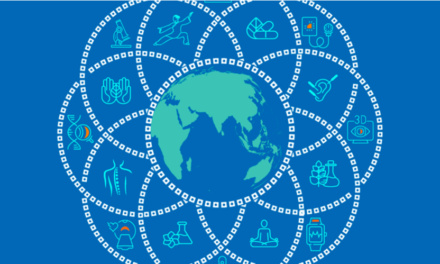Baku, Azerbaijan — In a powerful new report, the World Health Organization (WHO) has called on global leaders to prioritize health as they tackle climate change, emphasizing that health and well-being must be central to climate action. The report, released ahead of the 2024 United Nations Climate Change Conference (COP29) in Baku, stresses the intertwined nature of climate and health crises, urging a shift away from the traditionally siloed approach of separating health and climate concerns.
The report, created in collaboration with over 100 organizations and 300 experts worldwide, identifies key actions that could drastically improve conditions for the estimated 3.6 billion people living in regions most vulnerable to climate change. WHO Director-General Dr. Tedros Adhanom Ghebreyesus underscored the stakes involved, stating, “The climate crisis is a health crisis, which makes prioritizing health and well-being in climate action not only a moral and legal imperative but a strategic opportunity to unlock transformative health benefits for a more just and equitable future.”
Key Recommendations: Ending Fossil Fuels and Strengthening Health Systems
Central to WHO’s recommendations is an urgent call to phase out fossil fuel subsidies and reduce dependency on these pollutants, advocating instead for investments in clean, sustainable energy solutions. Such investments, the report argues, would reduce carbon emissions while also tackling pollution-related diseases that are on the rise globally. This approach aims to yield immediate health benefits while contributing to long-term climate goals.
The WHO report also provides detailed guidelines for addressing health impacts exacerbated by climate change, including:
- Strengthening Health Systems: Ensuring that health infrastructure is resilient and capable of withstanding climate impacts.
- Enhancing Climate Resilience: Preparing communities for extreme weather events and other climate-related health threats.
- Decarbonizing Health Systems: Reducing the carbon footprint of healthcare services to lead by example.
- Promoting Co-Benefits: Highlighting the mutual benefits of health-focused climate action that addresses both health and environmental goals simultaneously.
Global Health Threats Rising
The urgency of these recommendations is underscored by recent data from The Lancet, which highlights the rising health threats in countries like India, where 10 of 15 indicators tracking health impacts of climate change have reached record highs. According to WHO, failure to mitigate these risks would have devastating health consequences, particularly as global temperatures continue to approach the critical 1.5 degrees Celsius threshold established by the 2015 Paris Agreement.
A Call for Integrated, Strategic Action
The WHO report calls on COP29 attendees and global leaders to adopt a holistic approach that integrates health considerations into every aspect of climate action. The report aims to shape a future where climate policies are developed not just for environmental sustainability but also for equitable health outcomes, particularly in the world’s most climate-vulnerable regions.
As climate discussions unfold at COP29, WHO’s call for action serves as a reminder of the dual benefits of aligning health priorities with climate goals, advancing the vision for a healthier, more sustainable, and resilient world.











